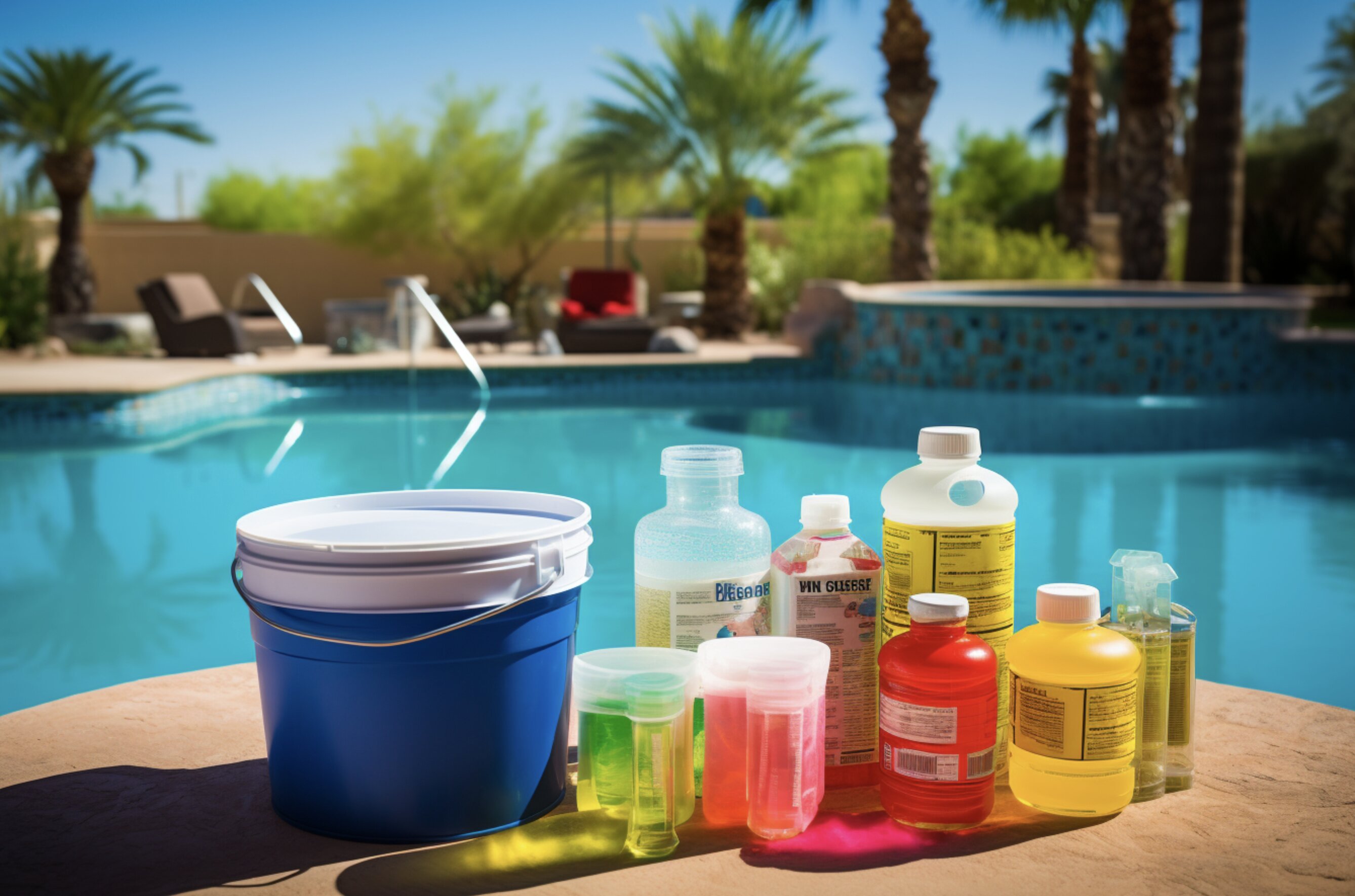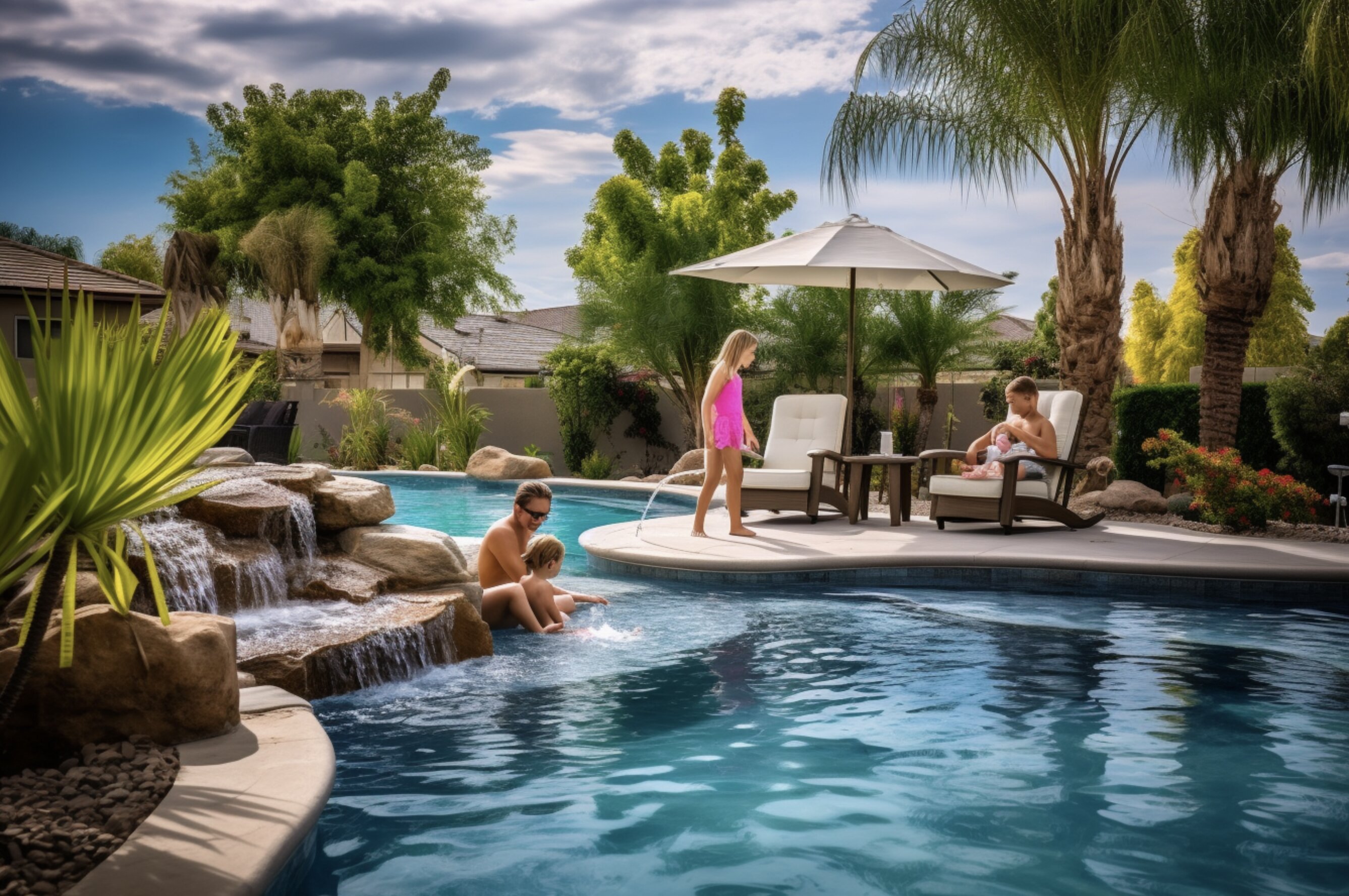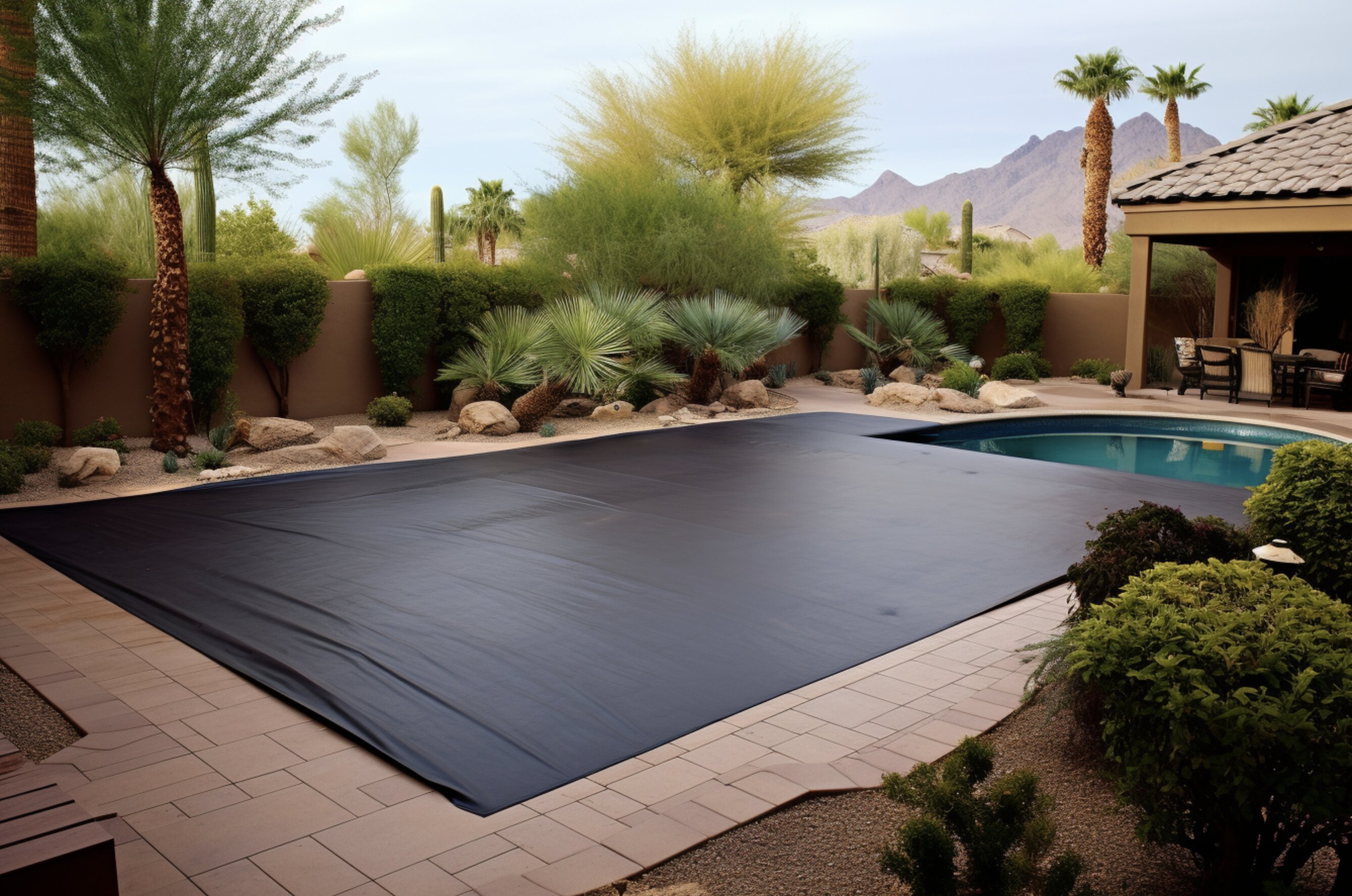Gather around my fellow chlorine connoisseurs and pH aficionados; it’s time to wade into the deep end of pool chemical lore. For long has the word “chemicals” conjured up a cauldron of confusion among pool owners, fraught with tall tales and half-truths more suitable for a spooky campfire story than your backyard oasis. Let’s dive into an aquatic reality check and clear the waters once and for all.
Myth #1: More Chemicals Equals Cleaner Water
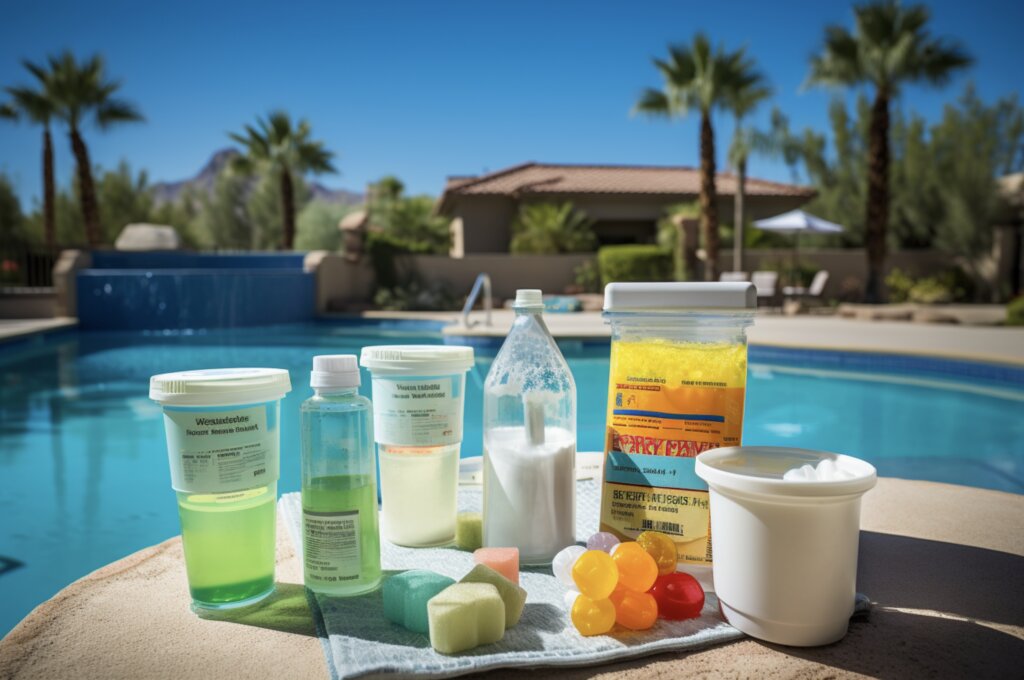
Hark! More is not always merrier, especially in the hallowed halls of H2O. Piling on the chemicals like a buffet plate on Thanksgiving doesn’t lead to cleaner water—it leads to a chemical cocktail that could irritate your skin and eyes. The golden rule? Balance is the key to a clear and happy pool.
Myth #2: Chlorine Is the Culprit for Red Eyes
Surprise twist—it’s not actually the chlorine that turns your peepers into a red-eyed monster lookalike. It’s the chloramines, formed when chlorine meets contaminants like oils, sweat, and yes, the dreaded pee. Keeping your pool properly balanced and encouraging pre-swim showers can help keep those chloramines at bay.
Myth #3: If There’s No Chlorine Smell, the Pool Isn’t Clean
Cue the dramatic gasp—the chlorine smell is not a chlorine victory parade. It’s actually a red flag signaling a high chloramine level, meaning it’s time to shock the pool and dial in those chemicals.
Myth #4: Pool Chemicals Can Work Wonders Instantly
If only pool care were like an instant noodles cup – just add water and presto! Unfortunately, it’s more like a slow-cooker recipe. It takes time for chemicals to distribute evenly and work their magic, so patience and regular testing are your best pals.
Myth #5: A Clear Pool Is a Clean Pool
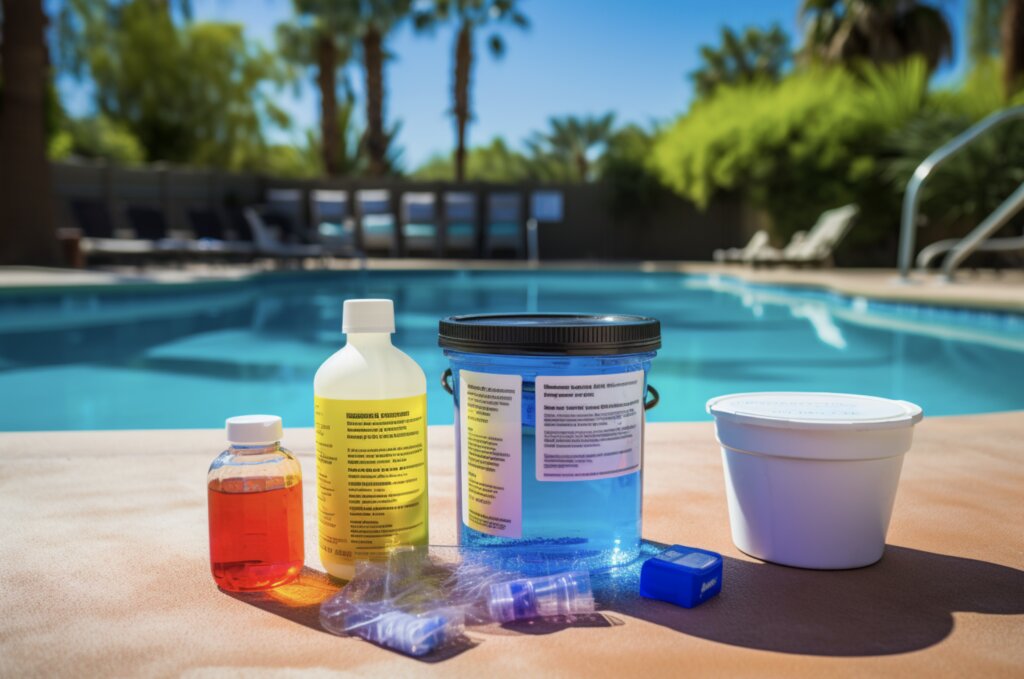
Clear water may be easy on the eyes, but it’s not a universal badge of health. Bacteria and other micro-unwanteds can still exist in crystal-clear water. That’s why regular water testing and chemical balancing are as crucial as sunscreen on a blazing Phoenix day.
Myth #6: The More Stabilizer, the Better to Protect Chlorine
Cyanuric acid, the sidekick of chlorine, certainly helps it last longer under the sun’s harsh gaze, but too much of it can weaken chlorine’s bacteria-fighting powers. It’s about finding that sweet stabilizer spot.
Truth Bomb: Regular Testing Is Everything
Here’s your pool party PSA – regular water testing is non-negotiable. It’s the compass that guides you to the promised land of perfect pH, tantalizing alkalinity, and just-right hardness levels. Test kits and strips don’t lie, so trust them and treat your pool accordingly.
So, there you have it: the skinny on pool chemicals stripped bare of the myths. If you ever feel like you’re doing the backstroke in the murk of pool chemistry, remember, you don’t have to go it alone. Our fleet of pool service professionals are ready to sail to your rescue, ensuring your pool remains less Loch Ness Monster and more friendly neighborhood waters.


